April 22, 2025 | 02:37 GMT +7
April 22, 2025 | 02:37 GMT +7
Hotline: 0913.378.918
April 22, 2025 | 02:37 GMT +7
Hotline: 0913.378.918
The Department of Plant Protection in collaboration with FAO Vietnam closed the national training course on integrated crop health management (TOT-IPHM) on June 15.
The closing ceremony was held at the Northern Plant Protection Center (Hung Yen) with the participation of representatives from the Department of Plant Protection, Department of Crop Production (MARD), FAO Vietnam, the Northern Sub-Department of Cultivation and Plant Protection
This TOT-IPHM training course was held over 115 days, with the participation of 30 trainees (future trainers) from 17 northern cities and provinces.
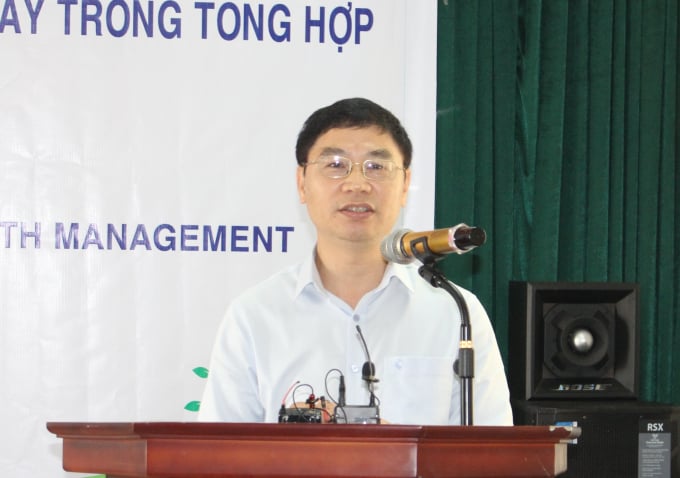
Mr. Nguyen Quy Duong, Deputy Director of the Department of Plant Protection commended the trainers and trainees who have overcome difficulties to successfully complete the IPHM training course. Photo: Trung Quan.
This is one of the two TOT-IPHM training courses organized by the Department of Plant Protection (training 30 trainers in the North and 30 in the South), within the framework of the project "Supporting techniques for formulating strategies and action plans for integrated crop health management (IPHM - Plant Health)” funded by the Food and Agriculture Organization of the United Nations (FAO), approved by the Ministry of Agriculture and Rural Development \with the Department of Plant Protection assigned to be the project owner.
Accordingly, the training course will equip trainees with diverse and inclusive contents related to agro-ecosystems building with various important issues including soil health, water, greenhouse gas emissions, effective use of agricultural production materials, human health and so on. After the course ends, these resource trainers will directly provide knowledge training to local farmers.
Mr. Rémi Nono Womdim, Chief Representative of the FAO Office in Vietnam shared: The challenge currently facing the global agriculture sector is implementing the green revolution, transforming production models, and addressing root causes of hunger and malnutrition. Therefore, it is necessary to change the methods of production, distribution and consumption of nutritious food, creating a healthy and productive life for mankind.
Mr. Rémi Nono Womdim expressed his pleasure to see Vietnam's powerful transformation in the field of plant protection. In addition, the participants in this training course will be the first national trainers on IPHM in Vietnam. These trainees will participate and actively contribute to the implementation of the national action plan on IPHM which is being developed by the Ministry of Agriculture and Rural Development, the Department of Plant Protection and the technical support of FAO along with other experts.
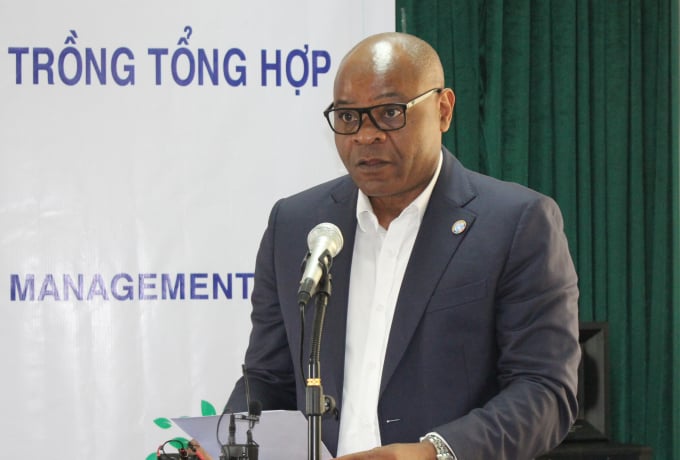
Mr. Rémi Nono Womdim: FAO will always stand ready to support the Government of Vietnam in transforming and building efficient, broad, flexible, and sustainable agricultural systems. Photo: Trung Quan.
Mr. Rémi Nono Womdim affirmed that FAO will always stand ready to support the Government of Vietnam in transforming and building efficient, broad, flexible, and sustainable agricultural systems.
commended the trainers and trainees who have overcome difficulties due to the pandemic to successfully to complete the course excellently.
Additionally, Mr. Duong was happy to find that participants of the TOT-IPHM class mastered and thoroughly answered on the similarities and differences between IPHM and IPM. Namely, farmers graduating from the FFS classes have also fully grasped the basic principles of IPHM; some households have experimented with their 2022 spring crop with very positive results.
According to Mr. Duong, the IPHM program will enrich farmers and create a solid foundation for Vietnamese agriculture to reach out to the world. Following the IPHM training program, advanced farming methods such as SRI, "3 decrease, 3 increase" were implemented. As a result, greenhouse gas emissions in production are reduced by 30-40% compared to conventional farming methods. In addition, many new contents including soil health, planting area codes, building professional farmers (equipped with knowledge on safe production, markets, 4.0 digital transformation, etc.) were also implemented.
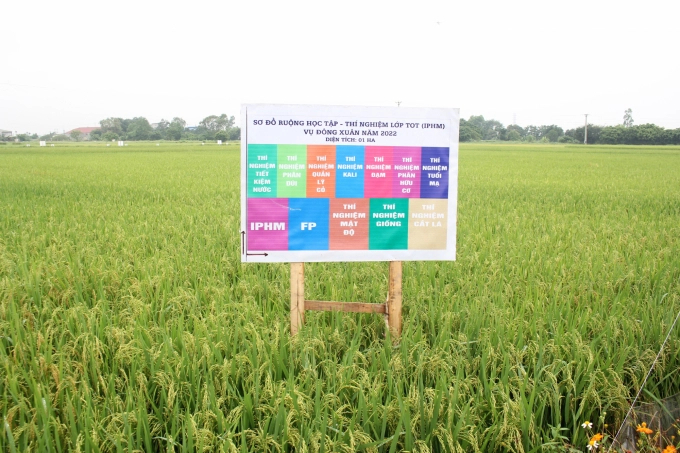
Rice production model following IPHM was implemented through the training course in Hung Yen province on the winter-spring crop of 2022. Photo: Trung Quan.
The 6 basic principles of IPHM are consistent with the major orientations and goals that Vietnam's agriculture and rural development industry is aiming for: Developing ecological agriculture, modern rural areas, and smart farmers.
According to Mr. Duong, Vietnam is the first country in Southeast Asia to implement the IPHM program. Therefore, the most important goal of the training course is to review the content of the IPHM program, assess the feasibility of the contents as well as measures to edit, perfect, and issue a general standard on IPHM. Provincial Sub-Departments of Crop Production and Plant Protection will use this standard as a basis to develop their program of activities for the next 10 years.
Mr. Duong noted: Trainees must not be content with their achieved results because this is just the beginning of a very long road ahead. In addition, the trainees with their newly-acquired knowledge need to actively participate in the local agricultural sector to spread the benefits of the IPHM program, and replicate the IPHM program on many other key crops following the development orientation of the their provinces.
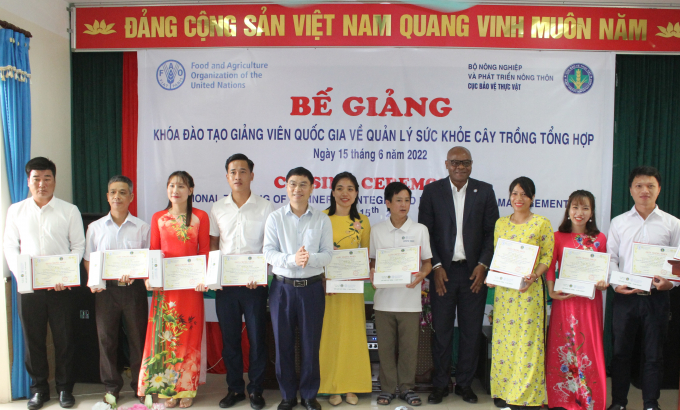
Leaders of the Department of Plant Protection and the Chief Representative of FAO Vietnam announcing the decision to recognize the training results and awarding the IPHM training course certificates to 30 trainees. Photo: Trung Quan.
Mr. Duong also suggested the Provincial Sub-Departments of Crop Production and Plant Protection to promptly develop IPHM programs for their provinces, initially on rice before expanding to other key crops. They should also organize IPHM training courses so that the trainees can apply the knowledge they acquired to train provincial TOT trainers as well as FFS classes for farmers.
The Department of Plant Protection will assign the Bureau of Plant Protection to coordinate with centers, branches, trainers, experts to finalize the content and training program of TOT, FFS and issue an action plan, a set of documents for IPHM; serving as a basis for provinces to deploy. In addition, they will develop a framework of TOT training programs suitable to the specific characteristics of provinces; promote communication to spread IPHM effectively in the immediate future.
At the closing ceremony, leaders of the Department of Plant Protection and the Chief Representative of FAO Vietnam announcing the decision to recognize the training results and awarding the IPHM training course certificates to 30 trainees. After finishing the course, the trainees will become the first national trainers of IPHM in Vietnam.
Translated by Nguyen Hai Long

(VAN) At the close of the P4G Summit, delegates agreed to transform agricultural and food systems sustainably, ensuring food security while protecting the environment.
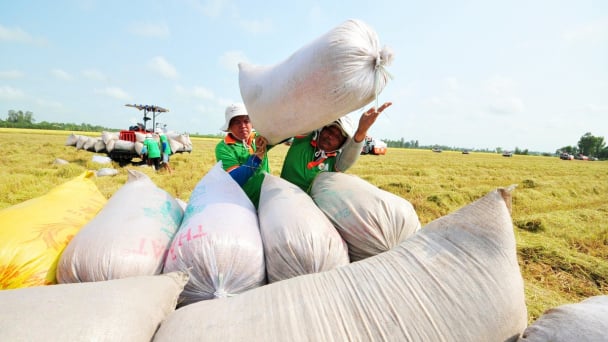
(VAN) The rice industry in the Mekong Delta is undergoing a major transformation, shifting toward sustainable, high-quality, and low-emission exports to meet the green and clean standards increasingly demanded by international markets.
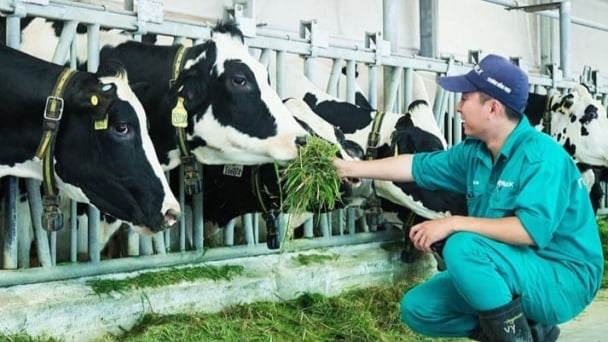
(VAN) According to Tong Xuan Chinh, Deputy Director of the Department of Livestock Production and Animal Health, Vietnam’s dairy cattle industry must overcome seven major challenges to achieve sustainable development.
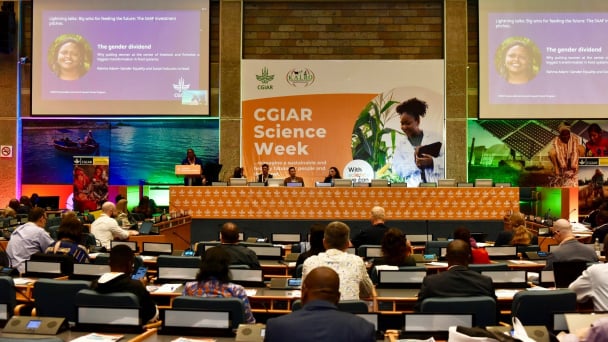
(VAN) The CGIAR’s Sustainable Animal and Aquatic Foods (SAAF) program represents a new approach that emphasizes the transformation of food systems toward sustainability.
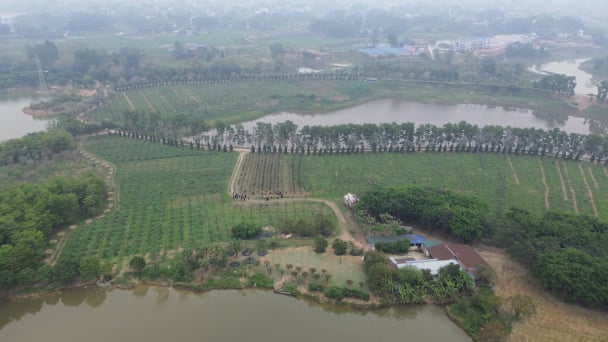
(VAN) Scientists assume that industrial agriculture has been 'outdated.' As a result, a comprehensive overhaul or a revolution in the direction of embracing ecological agriculture is needed.
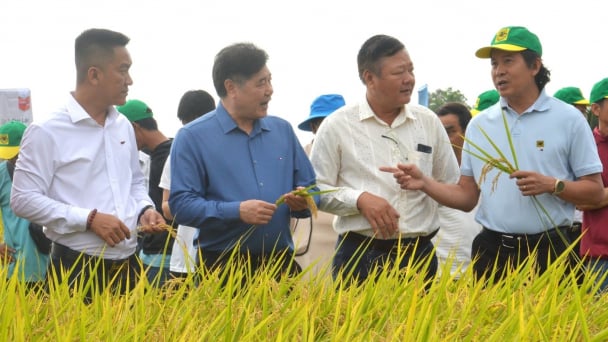
(VAN) The results from pilot fields are catalyzing the expansion of the One million hectares of high-quality, low-emission rice project in Kien Giang.
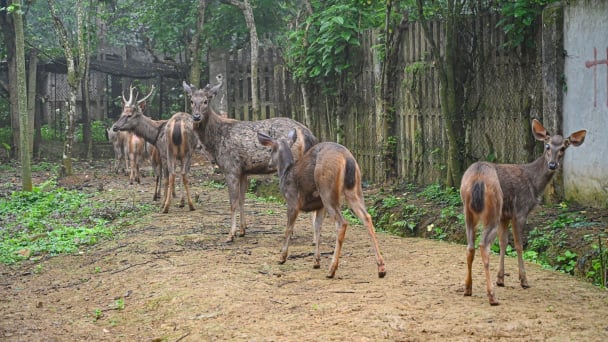
(VAN) On the morning of April 11, Cuc Phuong National Park received 18 individuals of endangered and rare wild animals from Da Nang city.